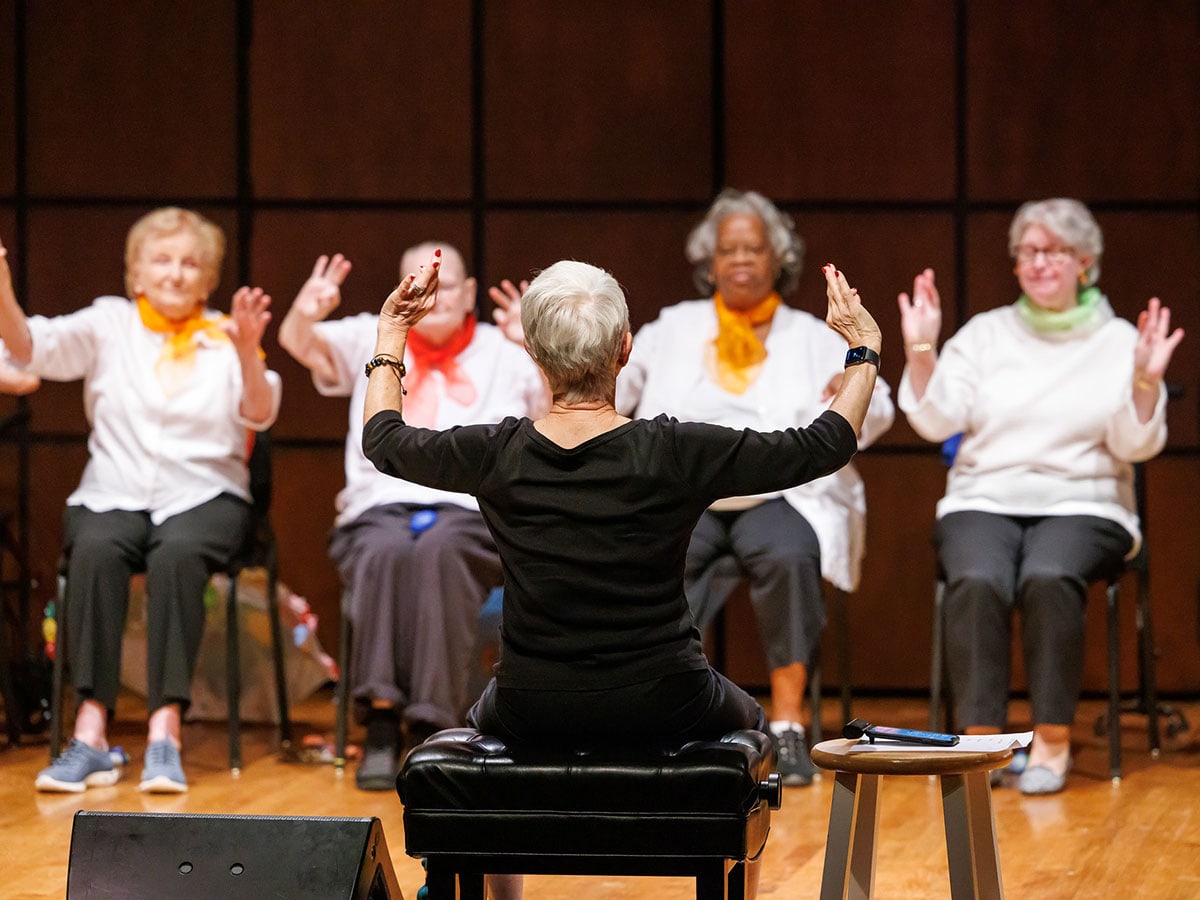 Residents from five subsidized senior housing communities participated in the study, which showed that physical acting in a theater training experience program could improve physical functioning.Can learning the art of acting for theater help older adults improve their balance and reduce their risk of falls?
Residents from five subsidized senior housing communities participated in the study, which showed that physical acting in a theater training experience program could improve physical functioning.Can learning the art of acting for theater help older adults improve their balance and reduce their risk of falls?
The answer could be yes, according to a promising study published in Innovation in Aging from University of Alabama at Birmingham Arts in Medicine.
Compared with older adults living in single-dwelling homes, subsidized senior housing residents have a higher prevalence of poor health and a higher risk of falls. Theater experience training programs have been shown to improve cognitive function, emotional well-being, social connection and health-related quality of life in this population, says study author and UAB Arts in Medicine Director Kimberly Kirklin.
Theater experience training typically involves improvisation, creativity, learning, emotional expression and movement in a group setting. This multidimensional engagement can address several health care concerns common among subsidized senior housing residents, including comorbidities associated with physical inactivity, mental health issues, social isolation and cognitive decline.
The AIM study evaluated the effect of a theater experience training program on objective measures of physical functioning and emotional stress. Theater is a complex, multicomponent performing art. The innovative UAB theater experience training program involved the method of physical acting, Kirklin says.
To prepare for stage performances, actors often incorporate physical movements while memorizing a script or improvising lines.
“Acting requires as much movement as it does vocalization,” Kirklin said. “Enacting stories using emotional verbal and nonverbal expression, as well as social engagement with other actors, was shown to decrease anxiety, stress and loneliness; increase self-esteem and a sense of value and purpose; and promote personal growth and achievement.”
The single-blind trial randomized residents of senior housing from five subsidized senior housing communities in Birmingham, Alabama, to a 10-week, twice-weekly theater experience training program or a waitlist control arm.
The study enrolled 81 participants; 53 were randomized to the theater experience training arm and 28 to the waitlist arm. Participants’ static balance, functional mobility, lower body strength, health-related quality of life, emotional stress as measured by hair cortisol levels and fall incidents were assessed at baseline, post-program and three-month follow-up.
Post-program, participants in the theater experience training arm had improved static balance and reduced falls compared with control arm participants. Some carry-over effect was observed at the three-month follow-up. Study results indicate that the program’s physical acting techniques can effectively enhance static balance and decrease the number of falls among older adults living in subsidized housing, according to the National Institutes of Health.
Integrating theater-based programs into senior housing policies and practices could be a valuable, and cost-effective, intervention to reduce falls and fall-related health care costs in the long term and enhance resident well-being, Kirklin says.
“The theater experience training program is a feasible option for older adults to enhance their physical stability, and for many it is an enjoyable and engaging activity,” Kirklin said. “It could be a valuable strategy for fall prevention.”
The program did not significantly impact functional mobility, lower body strength, overall quality of life or stress levels. While the program shows positive short-term effects, ongoing or repeated interventions may be necessary to maintain the benefits over the long term.
Authors of the study in its current form for publication in Innovation in Aging are Kimberly Kirklin; Haiyan Qu, Ph.D.; Ellise Mayor; John Lowman, P.T., Ph.D.; Jie Gao, Ph.D.; Lauren Edwards; Peng Li, Ph.D.; and Hon K. Yuen, Ph.D., in the UAB School of Health Professions, School of Public Health, and UAB Arts in Medicine.